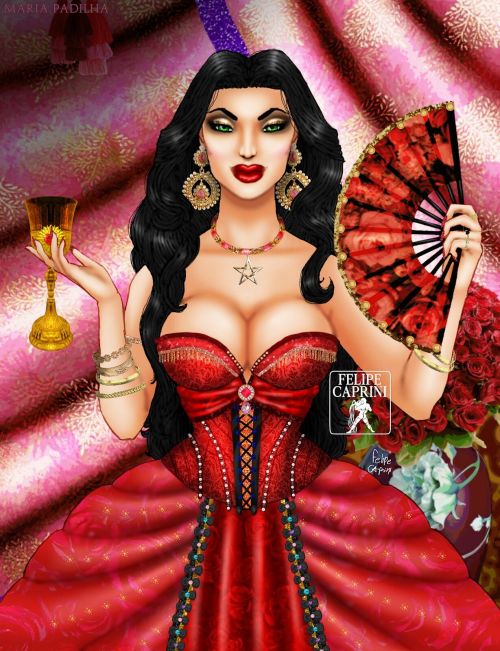Cantva190 - Sin Título

More Posts from Cantva190 and Others
another important thing
be sure to disinfect the "needle" before use. Another fact is that you could use a "needle" for diabetics (Insulin Syringes) to make it as painless as possible.
Is blood magic inherently dark magic?
Nope, that’s just a common social bias.
The main thing about blood magic is to be safe about it, like don’t open main veins or arteries, bandaging the wound properly, keeping your situation as sterile as possible to avoid infection, and disinfect the wound after. That kind of thing.
There’s something about blood magic that makes things a lot more personal though, since you’re using the liquid life source that courses through your veins through magic. It definitely amps up the power for the spell as a result of the personal sacrifice, but it also makes your magic have a more specific signature to you as a person and a witch. That magic you perform with blood magic is then tied to you and can be traced back to you if you’re using it for spirit work, summoning, or if you’re casting a spell on another witch (if theyre a very skilled witch). Just be wary of that detail.
instagram:brekkie_beebo

BLACK MAGE × PIKACHU

🎶Little bitch baby but I'll rip your face off🎶 Be careful baby don't trip She doesn't play well, she prefers to fight with you Song: PRINCESSBRI - Little Baby B!tch



Gosurori Shokeinin (Gothic & Lolita Psycho) - 2010
Art: andyruiz.art 💙💟🤍💟💙





Verosika Mayday And Succubus
#HelluvaBoss
History of Maria Padilha
In 1334, in the Spanish city of Seville (in the homonymous province), a woman (an influential courtesan or high-class prostitute) who determined the fate of a European court. Dona Maria Padilla, from lover to queen, influenced King Dom Pedro I of Castile (1334-1369) in the most important decisions, such as the mode of government and the negotiation of his marriage to Branca de Bourbon, aiming at an alliance with France.
offerings
Among the most common offerings for this phalanx are: farofa padê with palm oil, champagne, cigarettes, earrings, bracelets, necklaces and candles, in addition to red roses. His favorite colors are usually red and black.
Which Maria Padilha exist?
Among the various sub-phalanges are:
Maria Padilha do Cruzeiro das Almas - Omolu-Obaluaê/Iansã Line Maria Padilha da Encruzilhada - Line of Ogum Maria Padilha do Cemitério - Omolu-Obaluaê Line Maria Padilha da Kalunga - Oxum/Iemanjá Line Maria Padilha das Sete Catatumbas / Sete Tombs - Omolu-Obaluaê Line Maria Padilha da Navalha - Line of Oxum Maria Padilha das Sete Saias - Line of OxumHistory of Maria Padilha
In 1334, in the Spanish city of Seville (in the homonymous province), a woman (an influential courtesan or high-class prostitute) who determined the fate of a European court. Dona Maria Padilla, from lover to queen, influenced King Dom Pedro I of Castile (1334-1369) in the most important decisions, such as the mode of government and the negotiation of his marriage to Branca de Bourbon, aiming at an alliance with France.
offerings
Among the most common offerings for this phalanx are: farofa padê with palm oil, champagne, cigarettes, earrings, bracelets, necklaces and candles, in addition to red roses. His favorite colors are usually red and black.
Which Maria Padilha exist?
Among the various sub-phalanges are:
Maria Padilha do Cruzeiro das Almas - Omolu-Obaluaê/Iansã Line Maria Padilha da Encruzilhada - Line of Ogum Maria Padilha do Cemitério - Omolu-Obaluaê Line Maria Padilha da Kalunga - Oxum/Iemanjá Line Maria Padilha das Sete Catatumbas / Sete Tombs - Omolu-Obaluaê Line Maria Padilha da Navalha - Line of Oxum Maria Padilha das Sete Skirts - Line of Oxum
Maria Padilha

História de Maria Padilha
Em 1334, na cidade espanhola de Sevilha (na província homônima), uma mulher (influente cortesã ou prostituta grã-fina) que determinou o destino de uma corte europeia. Dona Maria Padilla, de amante a rainha, influenciou o rei Dom Pedro I de Castela (1334-1369) nas mais importantes decisões, como no modo de governo e na negociação de seu casamento com Branca de Bourbon, visando uma aliança com a França.
Oferendas
Entre as oferendas mais comuns para esta falange estão: padê de farofa com dendê, champanhe, cigarros, brincos, pulseiras, colares e velas, além de rosas vermelhas. Suas cores preferidas geralmente são o vermelho e o preto.
Quais Maria Padilha existem?
Entre as diversas sub-falanges estão:
Maria Padilha do Cruzeiro das Almas - Linha de Omolu-Obaluaê/Iansã Maria Padilha da Encruzilhada - Linha de Ogum Maria Padilha do Cemitério - Linha de Omolu-Obaluaê Maria Padilha da Kalunga - Linha de Oxum/Iemanjá Maria Padilha das Sete Catatumbas / Sete Tumbas - Linha de Omolu-Obaluaê Maria Padilha da Navalha - Linha de Oxum Maria Padilha das Sete Saias - Linha de Oxum

ZHEANI Sparkes
-
 cantva190 reblogged this · 2 years ago
cantva190 reblogged this · 2 years ago -
 cantva190 liked this · 2 years ago
cantva190 liked this · 2 years ago -
 eclecticsari reblogged this · 3 years ago
eclecticsari reblogged this · 3 years ago


